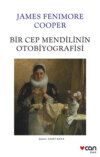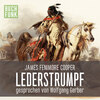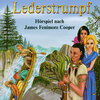Kitabı oku: «The Chainbearer: or, The Littlepage Manuscripts», sayfa 51
CHAPTER XVI
"And yet it is said – Labor in thy vocation; which is as much as to say – let the magistrates be laboring men; and therefore should we be magistrates." —King Henry VI.
In a minute or two the tumult ceased, and a singular scene presented itself. The church had four separate groups or parties left in it, beside the Injins, who crowded the main aisle. The chairman, secretary, two ministers, and lecturer, remained perfectly tranquil in their seats, probably understanding quite well they had nothing to fear from the intruders. Mr. Warren and Mary were in another corner, under the gallery, he having disdained flight, and prudently kept his daughter at his side. My uncle and myself were the pendants of the two last named, occupying the opposite corner, also under the gallery. Mr. Hall, and two or three friends who stuck by him, were in a pew near the wall, but about half-way down the church, the former erect on a seat, where he had placed himself to speak.
"Proceed with your remarks, sir," coolly observed the chairman, who was one of those paradoxical anti-renters who had nothing to do with the Injins, though he knew all about them, and, as I have been told, was actually foremost in collecting and disbursing their pay. At this instant, Seneca Newcome sneaked in at the side door, keeping as far as possible from the "disguised and armed," but curious to ascertain what would come next.
As for Hall, he behaved with admirable self-possession. He probably knew that his former auditors were collecting under the windows, and by raising his voice he would be easily heard. At all events, he did elevate his voice, and went on as if nothing had happened.
"I was about to say a word, Mr. Chairman, on the natur' of the two qualities that have, to me at least, seemed uppermost in the lecturer's argooment" – yes, this sensible, well-principled man, actually used that detestable sound, just as I have written it, calling "argument" "argooment" – what a pity it is that so little attention is paid to the very first principles of speaking the language well in this country, the common schools probably doing more harm than they do good in this respect – "that have, to me at least, seemed uppermost in the lecturer's argooment, and they are both those that God himself has viewed as of so great importance to our nature as to give his express commandments about them. He has commanded us not to steal, and he has commanded us not to covet our neighbor's goods; proof sufficient that the possession of property is sanctioned by divine authority, and that it is endowed with a certain sanctity of privilege. Now for the application.
"You can do nothing as to leases in existence, because the State can't impair a contract. A great deal is said about this government's being one of the people, and that the people ought to do as they please. Now, I'm a plain man, and am talking to plain men, and mean to talk plainly. That this is a government of the people, being a democracy, or because the sovereign power, in the last resort, resides in the body of the people, is true; but that this is a government of the people, in the common signification, or as too many of the people themselves understand it, is not true. This very interest about which there is so much commotion, or the right to interfere with contracts, is put beyond the people of the State by a clause in the Constitution of the United States. Now, the Constitution of the United States might be altered, making another provision, saying that 'no State shall ever pass any law to do away with the existence of durable leases,' and every man, woman, and child in New York be opposed to such a change, but they would have to swallow it. Come, let us see what figures will do. There are twenty-seven States in actual existence, and soon will be thirty. I don't care on which number you calculate; say thirty, if you please, as that is likely to be the number before the Constitution could be altered. Well, twenty-three of these States can put a clause into the Constitution, saying you shan't meddle with leases. This might leave the seven most populous States, with every voter, opposed to the change. I've made a calculation, and find what the seven most populous States had in 1840, and I find that more than half of all the population of the country is contained in them seven States, which can be made to submit to a minority. Nor is this all; the alteration may be carried by only one vote in each of the twenty-three States, and, deducting these from the electors in the seven dissenting States, you might have a Constitutional change made in the country against a majority of say two millions! It follows that the people, in the common meaning, are not as omnipotent as some suppose. There's something stronger than the people, after all, and that's principles, and if we go to work to tear to pieces our own – "
It was impossible to hear another word that the speaker said. The idea that the people are not omnipotent was one little likely to find favor among any portion of the population that fancy themselves to be peculiarly the people. So much accustomed to consider themselves invested with the exercise of a power which, in any case, can be rightfully exercised by only the whole people, have local assemblages got to be, that they often run into illegal excesses, fancying even their little fragment of the body politic infallible, as well as omnipotent, in such matters at least. To have it openly denied, therefore, that the popular fabric of American institutions is so put together as to leave it in the power of a decided minority to change the organic law, as is unquestionably the fact in theory, however little likely to occur in practice, sounded in the ears of Mr. Hall's auditors like political blasphemy. Those under the windows groaned, while the gang in the aisle whooped and yelled, and that in a fashion that had all the exaggeration of a caricature. It was very apparent that there was an end of all the deliberative part of the proceedings of the day.
Hall seemed neither surprised nor uneasy. He wiped his face very coolly, and then took his seat, leaving the Injins to dance about the church, flourishing their rifles and knives, in a way that might have frightened one less steady. As for Mr. Warren, he led Mary out, though there was a movement that threatened to stop him. My uncle and myself followed, the whooping and screaming being really unpleasant to the ear. As to the chairman, the secretary, and the two ministers of the gospel, they kept their stations on the stage, entirely self-possessed and unmolested. No one went near them, a forbearance that must have been owing to the often alleged fact that the real anti-renters, the oppressed tenantry of New York, and these vile masqueraders, had nothing to do with each other!
One of the astounding circumstances of the times, is the general prevalence of falsehood among us, and the almost total suppression of truth. No matter what amount of evidence there may be to contradict a statement, or how often it has been disproved, it is reaffirmed, with just as much assurance, as if the matter had never been investigated; ay, and believed, as if its substance were uncontradicted. I am persuaded there is no part of the world, in which it is more difficult to get a truth into the public mind, when there is a motive to suppress it, than among ourselves. This may seem singular, when it is remembered how many journals there are, which are uttered with the avowed purpose to circulate information. Alas! the machinery which can be used to give currency to truth, is equally efficient in giving currency to falsehood. There are so many modes, too, of diluting truth, in addition to the downright lies which are told, that I greatly question, if one alleged fact out of twenty, that goes the rounds of the public prints, those of the commoner sort excepted, is true in all its essentials. It requires so much integrity of purpose, so much discrimination, such a sensitiveness of conscience, and often so large a degree of self-sacrifice, in men, to speak nothing but truth, that one is not to expect that their more vulgar and irresponsible agents are to possess a quality that is so very rare among the very best of the principals.
If I was glad to get out of the church myself, the reader may depend on it, I was rejoiced when I saw Mr. Warren leading Mary toward the place where I had left his wagon, as if about to quit a scene that now promised nothing but clamor and wrangling, if not something more serious. Uncle Ro desired me to bring out the wagon in which we had left the farm; and, in the midst of a species of general panic, in which the women, in particular, went flying about in all directions, I proceeded to comply. It was at this moment that a general pause to all movements was produced by the gang of Injins pouring out of the church, bringing in their centre the late speaker, Mr. Hall. As the chairman, secretary, lecturer, and the two "ministers of the gospel" followed, it was conclusive as to the termination of anything like further discussion.
My uncle called me back, and I thought was disposed to assist Hall, who, manfully supported by the two or three friends that had stood by him the whole day, was now moving toward us, surrounded by a cluster of wrangling and menacing Injins; the whole party bearing no little resemblance to a pack of village curs that set upon the strange dog that has ventured in among them.
Oaths and threats filled the air; and poor Hall's ears were offended by an imputation that, I dare say, they then heard for the first time. He was called a "d – d aristocrat," and a hireling is the pay of "d – d aristocrats." To all this, however, the sturdy and right-thinking blacksmith was very indifferent; well knowing there was not a fact connected with his existence, or a sentiment of his moral being, that would justify any such charge. It was in answer to this deadly imputation, that I first heard him speak again, after he had been interrupted in the church.
"Call me what you please," he cried, in his clear full voice; "I don't mind hard names. There isn't a man among you who thinks I'm an aristocrat, or the hireling of any one; but I hope I am not yet so great a knave as to wish to rob a neighbor because he happens to be richer than I am myself."
"Who gave Hugh Littlepage his land?" demanded one in the midst of the gang, speaking without the affectation of mimicry, though the covering to his head sufficiently changed his voice. "You know yourself it came from the king."
"He never worked for an acre of it!" bawled another. "If he was a hard-working, honest man, like yourself, Tim Hall, we might bear it; but you know he is not. He's a spendthrift and an aristocrat."
"I know that hard hands don't make a man honest, any more than soft hands make him a rogue," answered Tim Hall, with spirit. "As for the Littlepages, they are gentlemen in every sense of the word, and always have been. Their word will pass even now, when the bond of many a man who sets himself up ag'in them wouldn't be looked at."
I was grateful and touched with this proof that a character, which I fully believed to be merited, was not lost on one of the most intelligent men of his class, in that part of the country. Envy, and covetousness, and malignancy, may lie as they will, but the upright recognize the upright; the truly poor know who most assuage their sorrows and relieve their wants; and the real lover of liberty understands that its privileges are not to be interpreted altogether in his own favor. I did not like the idea of such a man's being ill-treated by a gang of disguised blackguards – fellows who added to the crime of violating a positive law, the high moral offence of prostituting the sacred principles of liberty, by professing to drag them into the service of a cause, which wanted very little, in its range, to include all the pickpockets and thieves in the land.
"They will do that noble fellow some injury, I fear," I whispered to my uncle.
"If it were not for the mortification of admitting our disguise, I would go forward at once, and attempt to bring him out of the crowd," was the answer. "But that will not do, under the circumstances. Let us be patient, and observe what is to follow."
"Tar and feathers!" shouted some one among the Injins; "Tar and feather him!" "Crop him, and send him home!" answered others. "Tim Hall has gone over to the enemy," added the Injin who asked whence I had my lands.
I fancied I knew that voice, and when its tones had been repeated two or three times, it struck me it was that of Seneca Newcome. That Seneca was an anti-renter, was no secret; but that he, a lawyer, would be guilty of the great indiscretion of committing felony, was a matter about which one might well entertain a doubt. To urge others to be guilty was a different matter, but to commit himself seemed unlikely. With a view to keep an eye on the figure I distrusted, I looked out for some mode by which he might be known. A patch, or rather gore in the calico, answered admirably, for on looking at others, I saw that this gore was accidental, and peculiar to that particular dress, most probably owing to a deficiency in the material originally supplied.
All this time, which indeed was but a minute or two, the tumult continued. The Injins seemed undetermined what to do; equally afraid to carry out their menaces against Hall, and unwilling to let him go. At the very instant when we were looking for something serious, the storm abated, and an unexpected calm settled on the scene. How this was effected, I never knew; though it is reasonable to suppose an order had been communicated to the Injins, by some signal that was known only to themselves. Of the result there was no doubt; the crowd around Hall opened, and that sturdy and uncompromising freeman came out of it, wiping his face, looking heated and a little angry. He did not yield, however, remaining near the spot, still supported by the two or three friends who had accompanied him from Mooseridge.
My uncle Ro, on reflection, conceived it wisest not to seem in a hurry to quit the village, and as soon as I had ascertained that Mr. Warren had come to a similar decision, and had actually taken refuge in the house of a parishioner, I "was agreeable," as the English say. While the pedler, therefore, made a new display of his watches, I strolled round among the crowd, Injins and others intermixed, to see what could be seen, and to glean intelligence. In the course of my wanderings, chance brought me close to the side of the masker in the dress with the gore. Tickling him gently on the elbow, I induced him to step a little aside with me, where our conversation would not be overheard.
"Why might you be Injin – gentleman as you be?" I asked, with as much of an air of simplicity as I could assume.
The start with which this question was met convinced me I was right; and I scarce needed farther confirmation of the justice of my suspicion. If I had, however, it was afforded.
"Why ask Injin dat?" returned the man with the gore.
"Vell, dat might do, and it might not do, 'Squire Newcome; but it might not do wid one as knows you as vell as I know you. So dell me; vy might you be Injin?"
"Harkee," said Seneca, in his natural speech, and evidently much disturbed by my discovery: "you must, on no account, let it be known who I am. You see, this Injin business is ticklish work, and the law might – that is —you could get nothing by mentioning what you know, but as you have said, as I'm a gentleman, and an attorney at law, it wouldn't sound well to have it said that I was caught dressed up in this manner, playing Injin."
"Ja – ja – I oonderstants – gentlemans might not do sich dings, und not be laughed at – dat's all."
"Ye-e-e-s – that's all, as you say, so be careful what you say or hint about it. Well, since you have found me out, it's my treat. What shall't be?"
This was not very elegant for a "gentleman," and "an attorney at law," certainly, but, as it belonged to the school of Mr. Newcome, it struck me it might not be prudent for me to betray that I belonged to one of a different sort. Affecting contentment, therefore, I told him, what he pleased, and he led me to a store of all business, that was kept by his brother, and in which, as I afterward found, he himself was a partner. Here he generously treated me to a glass of fiery whiskey, which I managed to spill in a way that prevented my being choked. This was adroitly enough effected, as a refusal to drink would have been taken as a most suspicious circumstance in a German. As respects Americans of my assumed class, I am happy to say it is now more possible for one to refuse a glass than to accept it. It says a good deal in favor of the population of a country, when even the coachman declines his whet. Nevertheless, a nation may become perfectly sober, and fall away with fearful rapidity on other great essentials. On the subject of sobriety, I agree altogether with my uncle, in thinking that the Americans drink much less than most, if not less than any European nation; the common notion that long prevailed to the contrary in the country, being no more than the fruits of the general disposition, in other people, to decry democracy, aided somewhat, perhaps, by the exaggerations that are so common in all the published statistics of morals.
I remarked that very few even of the Injins drank, though they now began to circulate freely among the crowd, and in the stores. Seneca left me as soon as he fancied he had clinched my discretion with a treat, and I stood looking round at the manner in which the "armed and disguised" conducted themselves. One fellow, in particular, attracted my attention; and his deportment may be taken as a specimen of that of many of his comrades.
I was soon struck by the fact that Orson Newcome, Seneca's brother and partner, was obviously desirous of having as little to do with any of the Injins as possible. As soon as one entered his store, he appeared uneasy, and whenever one left it, he seemed glad. At first, I was inclined to think that Orson – what names will not the great Eastern family adopt, before they have got through with their catalogue? – really, they seem to select their appellations as they do so many other things, or to prove that they'll do as they please; but Orson, I fancied at first, was influenced by principle, and did not care to conceal the disgust he felt at such audacious and illegal proceedings. But I soon discovered my mistake, by ascertaining the true cause of his distaste for the presence of an Injin.
"Injin want calico, for shirt" – said one of these worthies, significantly, to Orson, who at first affected not to hear him.
The demand was repeated, however, with additional significance, when the cloth was reluctantly thrown on the counter.
"Good," said the Injin, after examining the quality; "cut Injin twenty yard —good measure, hear?"
The calico was cut, with a sort of desperate submission; the twenty yards were folded, enveloped, and handed to the customer, who coolly put the bundle under his arm, saying, as he turned to leave the store – "Charge it to Down Rent."
The mystery of Orson's sullenness was now explained. As invariably follows the abandonment of principle, the fomenters of wrong were suffering smartly through the encroachments of their own agents. I ascertained afterward that these very Injins, who had been embodied in hundreds, with a view to look down law, and right, and the sacred character of contracts, had begun to carry out their main principle, and were making all sorts of demands on the pockets and property of their very employers, under one pretence or another, but with very obvious tendencies toward their own benefit. The "spirit of anti-rentism" was beginning to develop itself in this form, under the system of violence; as, under that of legislative usurpation, and legislative truckling to numbers, which is most to be feared from the character of our representatives, it will as certainly be developed, unless suppressed in the bud, by such further demands on its complaisant ministers, as will either compel them to repent of their first false step, will drive the State to civil war, or will drive all the honest men out of it.
I did not remain long in the store. After quitting it, I went in quest of Mr. Warren and Mary, anxious to know if I could be of any service to them. The father thanked me for this attention, and let me know that he was now about to quit the village, as he saw others beginning to go away, among whom was Hall, who was an old and much valued acquaintance of his, and whom he had invited to stop at the rectory to dine. He advised us to imitate the example, as there were strangers among the Injins, who might be addicted to drinking.
On this information I hunted up my uncle, who had actually sold most of his trinkets, and all his watches but one, the secret of his great success being the smallness of his prices. He sold for what he had bought, and in some instances for even less, quitting the place with the reputation of being the most reasonable jewel-pedler who had ever appeared in it.
The road was beginning to be lined with vehicles carrying home the people who had collected to hear the lecture. As this was the first occasion which offered for witnessing such an exhibition since my return, I examined the different parties we passed, with a view to comparison. There is a certain air of rusticity, even in the large towns of America, which one does not meet with in the capitals of the old world. But the American country is less rustic than any part of the world with which I am acquainted, England alone excepted. Of course, in making such a remark, no allusion is intended to the immediate environs of very large towns; though I am far from certain that the population of St. Ouen, the Runnymede of France, and which stands within a league of the walls of Paris, would not have offered a more decidedly rustic spectacle than that which we then saw. As respects females, this was very strikingly true; scarce one being visible who had that air of coarseness, and ignorance, and vulgarity, which denotes a degraded condition and a life of hardships. There was little apparent that marked a peasantry in the moral sense of the word; but the whole population seemed to be at their ease, using neat and well-kept vehicles; solid, active horses; and being themselves reasonably well, though not very tastefully clad. Yet, all this was on a leased estate, under the dire oppression of a landlord, and beneath the shadow of aristocracy! A short dialogue which took place between my uncle and two sturdy weather-beaten husbandmen, who drove their horses to a short distance on a walk at the side of ours, made the impression produced by such facts deeper than it might otherwise have been. I will relate it.
"You are Jarmans, I b'lieve," commenced the oldest of the two men, a gray-headed tenant of my own, of the name of Holmes, who was well known to us both – "Jarmans, from the old countries, I hear?"
"Ja – we bees from der olt coontries; und dat is a great vay off."
"Ye-e-es, I s'pose it is – I've heern tell of them coontries, often. Does the landlord system exist there?"
"Ja – dere ist lantlordts all ofer dis worlt, I do dinks; und tenants, doo."
"Well, and how is the plan liked there; or be folks thinking of getting red (rid) on't?"
"Nein – how might dey gets red of it? It ist der law, you might see, and vhat ist der law moost be done."
This answer puzzled old Holmes a good deal. He passed a hand over his face, and turned to his companion, one Tubbs, also a tenant on my estate, as if to ask assistance. Tubbs was one of the new school; a school that makes more laws than it respects, and belongs to the movement. He is a man that fancies the world never knew anything of principles, facts, or tendencies, until the commencement of this century.
"What sort of a goverment had you, in your own country?" demanded Tubbs.
"Bretty goot. Mein coontry was Preussen; und dat might be t'ought a bretty goot gofernment."
"Yes, but it's a kingly government, I take it; – it seems to me, I have heern tell of kings in that land."
"Ja, ja – dere ist ein koenig – one king. De last might be der goot koenig Vilhelm, und now dere ist his son, who ist a goot koenig, too, as I might dink. Ja, ja – dere ist a king."
"That explains it all," cried Tubbs, with a sort of triumph. "You see, they have a king, and so they have tenants; but, here we have no king, and we have no need of landlords. Every man, in a free country, should be his own landlord; that's my doctrine, and to that I'll stick."
"There is some reason in that, fri'nd; isn't that your idee?" asked Holmes.
"Vell, I might not oonderstandt. Dost der shentlemans object to landlordts, in his coontry, because dere might be landlordts in dem coontries as might haf kings."
"That's it! That's just the reason on't, and the true principle!" answered Tubbs. "Kings and liberty can't go together, and landlords and liberty can't go together."
"But might not der law in this coontry be to haf landlordts, too? I hear dat it ist so."
"Yes, that is the law, as it stands; but we mean to alter it all. We have got so many votes now, as to be sure to have both parties with us at the gin'ral election; and give us the Governor on our side, with the sartainty of votes enough to turn an election, and we're pretty confident of success. Votes is all that is wanting, in a truly free country, for men to have things pretty much in their own way."
"Und dost you mean to haf not'in dat might be in de coontries ast haf kings?"
"To be sure not. What do we want of any of your lordly contrivances, to make the rich richer, and the poor poorer."
"Vell, you moost alter de law of nature, if de rich vilt not get riches, und de poor vill not feel dey be poor. De Piple dells us dat de misery of de poor ist deir poverty."
"Ay, ay, Bible talk don't go for much in politics. Sabba' days are set aside for the Bible, and week-days for public and private matters. Now, here is Hugh Littlepage, of the same flesh and blood as my neighbor Holmes and myself be – no better and no worse; yes, I'm willing to allow he's no worse, in the main, though in some things I do think we might claim the preference; but I'll allow he's no worse, for the sake of argooment. Each on us rents a farm of this Littlepage, of a hundred acres good. Wa-al, this land we till, and crop, and labor, with our own hands, and the hands of our sons, and hired help, perhaps; and yet we have to pay fifty dollars apiece, annually, to that youngster, Hugh Littlepage, for rent; which money he takes and squanders where he pleases, in riotous livin', for't we know. Now, is that right, I ask; and isn't it an onsuitable state of things for a republican country?"
"Und you dinks yoong Littlebage might spend his money in riotous lifin' in foreign landts?"
"Sartain – that's the tale hereabouts; and I have seen a man who knows another, that has an acquaintance who has been in Paris, and who tells the people of his neighborhood that he stood at the door of the king's palace one day, and actually saw both the Littlepages going in to pay 'tribute unto Cæsar,' as it is called – I suppose you know; and they tell me that all that goes to see a king, has to kneel and kiss his hand – some say his toe. Do you happen to know how it is in the old countries?"
"It ist not so; I haf seen more kings as half a dozen, und dey dost not kneel down and kiss deir hants, except on sartain business. Dey might not allvays hear what is true, in dis country."
"Wa-a-l, I don't know, I never was there to see," answered Tubbs, in that peculiar manner, which, whenever it is used by an American, may safely be interpreted to mean, "I'll not contradict you, but I'll believe what I please." "That is what I've heern say. But, why should we pay rent to young Littlepage to spend in riotous living?"
"I might not know, oonless you haf hiret his landt, und agree't to pay him rent; in which case you might do as you agree't."
"But when the bargain's of a kingly natur', I say no. Every country has its natur', and every government has its natur', and all things should be in conformity with natur'. Now it's ag'in natur' to pay rent in a republican country. We want nothing here, that's in common with lords and kings."
"Vell, den, you most alter your whole coontry. You might not haf wifes und children; you might not lif in houses; and plough de landt; you might not eat und drink; and you might not wear any shirt."
Tubbs looked a little astonished. Like the Bourgeois Gentilhomme, he was amazed to find he had been talking prose all his life without knowing it. There is no question that laws unsuitable to the institutions of a republic might exist in a kingdom, but it is equally certain that the law which compels the tenant to pay for the use of his house or farm is not one of the number. Tubbs, however, had been so thoroughly persuaded, by dint of talking, there was something exceedingly anti-republican in one man's paying rent to another, that he was not disposed to give the matter up so easily.
"Ay, ay," he answered, "we have many things in common with kingdoms as men, I must allow; but why should we have anything in common of this aristocratic natur'? A free country should contain freemen, and how can a man be free if he doesn't own the land out of which he makes his living?"
"Und if he makes his lifin' out of anoder man's land, he might be honest enough to pay for its use, I dinks."
"But, we hold it ought not to be another man's land, but the land of him who works it."
"Dell me dis – dost you efer let out a field to a poor neighbor on shares?"
"Sartain; we will do that, both to accommodate folks, and to get crops when we are crowded with work ourselves."
"Und why might not all dat crop pelong to him dat works de field?"










